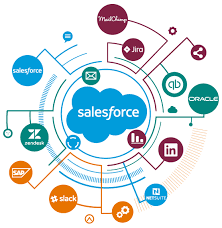Function-calling agent models, a significant advancement within large language models (LLMs), encounter challenges in requiring high-quality, diverse, and verifiable datasets. These models interpret natural language instructions to execute API calls crucial for real-time interactions with various digital services. However, existing datasets often lack comprehensive verification and diversity, resulting in inaccuracies and inefficiencies. Overcoming these challenges is critical for deploying function-calling agents reliably in real-world applications, such as retrieving stock market data or managing social media interactions. Salesforce API Gen.
Current approaches to training these agents rely on static datasets that lack thorough verification, hampering adaptability and performance when encountering new or unseen APIs. For example, models trained on restaurant booking APIs may struggle with tasks like stock market data retrieval due to insufficient relevant training data.
Addressing these limitations, researchers from Salesforce AI Research propose APIGen, an automated pipeline designed to generate diverse and verifiable function-calling datasets. APIGen integrates a multi-stage verification process to ensure data reliability and correctness. This innovative approach includes format checking, actual function executions, and semantic verification, rigorously verifying each data point to produce high-quality datasets.
Salesforce API Gen
APIGen initiates its data generation process by sampling APIs and query-answer pairs from a library, formatting them into standardized JSON format. The pipeline then progresses through a series of verification stages: format checking to validate JSON structure, function call execution to verify operational correctness, and semantic checking to align function calls, execution results, and query objectives. This meticulous process results in a comprehensive dataset comprising 60,000 entries, covering 3,673 APIs across 21 categories, accessible via Huggingface.
The datasets generated by APIGen significantly enhance model performance, achieving state-of-the-art results on the Berkeley Function-Calling Benchmark. Models trained on these datasets outperform multiple GPT-4 models, demonstrating substantial improvements in accuracy and efficiency. For instance, a model with 7 billion parameters achieves an accuracy of 87.5%, surpassing previous benchmarks by a notable margin. These outcomes underscore the robustness and reliability of APIGen-generated datasets in advancing the capabilities of function-calling agents.
In conclusion, APIGen presents a novel framework for generating high-quality, diverse datasets for function-calling agents, addressing critical challenges in AI research. Its multi-stage verification process ensures data reliability, empowering even smaller models to achieve competitive results. APIGen opens avenues for developing efficient and powerful language models, emphasizing the pivotal role of high-quality data in AI advancements.












